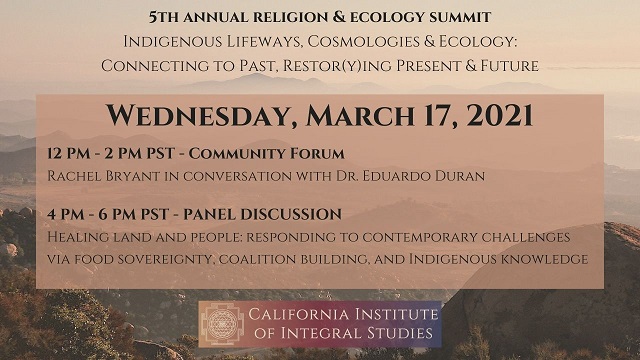Panel Title
Healing the Land and the People: Responding to Contemporary Challenges via Food Sovereignty, Coalition Building, and Indigenous Knowledge
Loading...
Presenter Bio
Tory Johnston (Quinault) is a PhD student in Native American Studies at the University of California, Davis with Designated Emphases in Environmental Humanities and Science and Technology Studies. His research interests include: Indigenous Sound and Music Studies; Critical Indigenous Studies approaches to ecomusicology; Quinault auralities (aural ontologies) and musicking; Quinault-specific praxes and knowledge systems; tribal sovereignty, governance, and resource management.
Presentation Description
In this presentation, I will explore the relational dimensions of Quinault auralities, ecology, and tribal sovereignty in the Pacific Northwest coast. Through multigenerational acts of musicking, Quinault auralities assert territorial authority, trace Quinault hydrographic traversal and geospatial realities, and articulate relationships between human and other-than-human beings. In the wake of colonial encroachments on Quinault sovereignty, including the disproportionate effects of climate change on Quinault peoples living on the coastline, the creation, performance and reclamation of Quinault song and dance is uniquely positioned to catalyze a relationality-centered political philosophy in tribal governance. Drawing from autoethnographic accounts and Indigenized sound and music studies theory, I propose that Quinault aural praxes are both inextricable from Indigeneity-centered land/water ethics and a meaningful approach to addressing the effects of climate change.
Presenter Photo

Keywords
Quinault; Indigenous lifeways; musicking
Aurality and Quinault's Adaptation to Climate Change: The Case for an Aurally-Focused Land Ethic
In this presentation, I will explore the relational dimensions of Quinault auralities, ecology, and tribal sovereignty in the Pacific Northwest coast. Through multigenerational acts of musicking, Quinault auralities assert territorial authority, trace Quinault hydrographic traversal and geospatial realities, and articulate relationships between human and other-than-human beings. In the wake of colonial encroachments on Quinault sovereignty, including the disproportionate effects of climate change on Quinault peoples living on the coastline, the creation, performance and reclamation of Quinault song and dance is uniquely positioned to catalyze a relationality-centered political philosophy in tribal governance. Drawing from autoethnographic accounts and Indigenized sound and music studies theory, I propose that Quinault aural praxes are both inextricable from Indigeneity-centered land/water ethics and a meaningful approach to addressing the effects of climate change.



